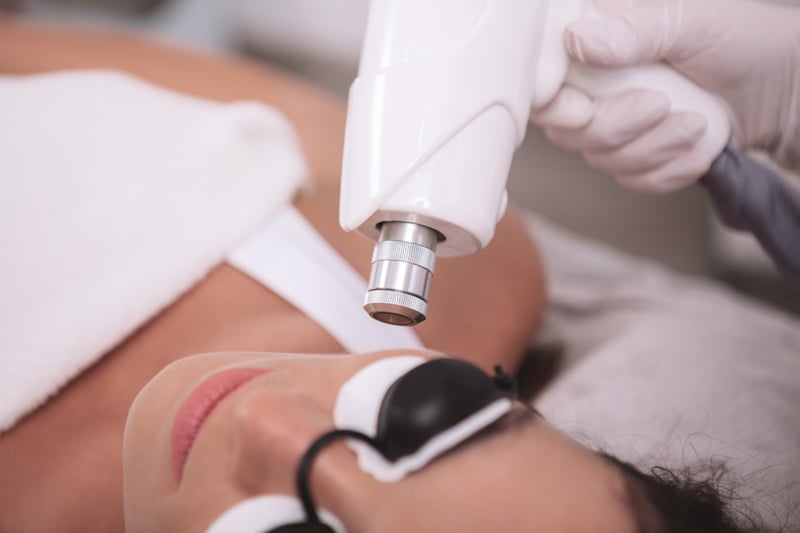Get Healthy!

- Steven Reinberg
- Posted January 24, 2023
Laser Treatment Might Help Prevent Common Forms of Skin Cancer
A cosmetic laser treatment that promises to erase wrinkles, scars, age spots and sun damage may also prevent the return of some skin cancers, a new, small study suggests.
Researchers found that in patients who had basal or squamous cell skin cancers, nonablative fractional laser treatment lowered the chances of the cancer recurrence by about half.
"We actually don't know why this procedure has this result," said senior researcher Dr. Mathew Avram, director of the Dermatology Laser and Cosmetic Center at Massachusetts General Hospital in Boston.
"We have to go to the lab and try to figure out why this is the case. There are theories about whether or not the treatment causes your immune function and skin to change, but we have no evidence of that," he said.
"Fractional lasers treat a fraction of the skin and leave the majority of the skin untreated," Avram said. "But even though we're only treating a part of the skin, the entire skin benefits from it."
Basal and squamous cell skin cancers are the most common type of skin cancer and are usually curable when caught early.
For the study, Avram's team reviewed the records of patients who had basal or squamous cell cancer. These patients typically have a 35% risk of developing new cancer within three years and a 50% risk of recurrence within five years.
Forty-three patients later had laser treatment, while 52 didn't.
Among patients treated with lasers, 21% developed new facial basal or squamous cell cancers over a follow-up of more than six years. Among untreated patients, 40% experienced new cancers, the researchers found.
After adjusting for age, gender and skin type, untreated patients were nearly three times more likely to develop new cancers than laser-treated patients.
Among treated patients who did developed skin cancer again, the recurrence took longer than among untreated patients, the researchers noted.
Despite these findings, Avram doesn't advise getting this laser treatment in hopes of preventing skin cancer or the recurrence of skin cancer.
"While I don't advocate that all patients should get a fractional laser treatment, in the event that you are considering getting a cosmetic treatment, it's good to know that in addition to the cosmetic benefits, you will actually get the benefits of what appears to be a decreased incidence of the two most common forms of skin cancer," he said.
The most important thing to do is to check your own skin to look for any new growths and to see a board-certified dermatologist, to examine you even more carefully for any precancerous spots or skin cancers, Avram said.
"Also, use sunscreen, avoid the sun, wear hats, all of that protective behavior, those things don't change, and I don't recommend doing anything more than that. I would not recommend the public go out and get this procedure. The procedure is expensive. There's downtime. There's no need to do it," he said.
The report was published recently in the journal Dermatologic Surgery.
Dr. Richard Carvajal directs medical oncology at Northwell Health Cancer Institute in Lake Success, N.Y. "Non-melanoma skin cancers such as basal cell carcinoma and squamous cell carcinoma are by far the most commonly diagnosed cancers, with over 5 million cases diagnosed in the U.S. each year," he said.
Although the risk of dying from these cancers is low, the cost and effects on quality of life for patients are significant and strategies to prevent or reduce the risk of developing skin cancers are needed, Carvajal said.
"The use of a laser therapy called nonablative fractional laser treatment may be one way to achieve this goal," he said. "These results, while certainly intriguing, require confirmation in additional studies."
More information
For more on skin cancer, see the Skin Cancer Foundation.
SOURCES: Mathew Avram, MD, director, Dermatology Laser & Cosmetic Center, Massachusetts General Hospital, Boston; Richard Carvajal, MD, deputy physician-in-chief, director, medical oncology, Northwell Health Cancer Institute, Lake Success, N.Y.; Dermatologic Surgery, Dec. 6, 2022

